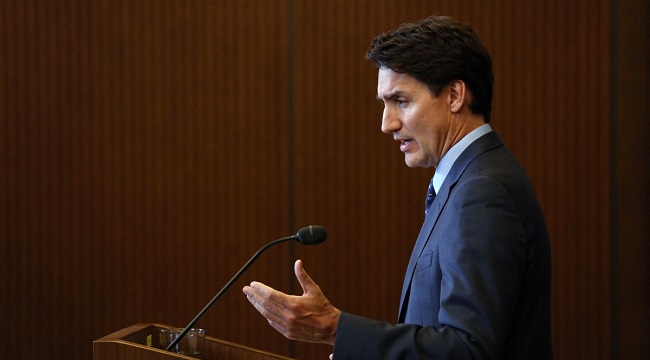
Canadian Prime Minister Justin Trudeau may announce his resignation as early as Monday, according to reports from The Globe and Mail and The Toronto Star. Sources within Trudeau’s Liberal Party revealed that the Prime Minister is expected to step down ahead of the party’s national caucus meeting scheduled for Wednesday.
While Trudeau’s office has declined to comment on the speculation, reports suggest the announcement could be made within 24 hours. If true, Trudeau’s resignation would leave the Liberal Party leaderless just months before the legislative elections slated for October.
It is unclear whether the 53-year-old Prime Minister would remain as the party’s interim leader or relinquish his position immediately. Trudeau has faced growing dissent within his party and mounting pressure following a series of political challenges, including narrowly surviving no-confidence votes in recent months.
Growing Political and Public Pressure
Trudeau’s popularity has significantly waned, with critics questioning his leadership amid economic and diplomatic challenges. He has faced increased pressure from incoming U.S. President Donald Trump, who has threatened to impose a 25% tariff on Canadian goods.
Adding to the tension, Deputy Prime Minister Chrystia Freeland resigned in December, citing disagreements over Trudeau’s approach to U.S.-Canada trade relations. This marked the first public dissent within his cabinet, further destabilizing his administration.
In response, Trudeau reshuffled his cabinet in late December, replacing a third of his ministers to address internal political unrest. Despite these efforts, public opinion polls show him trailing Conservative leader Pierre Poilievre by 20 points.
A Legacy of Reforms and Controversy
Trudeau, who came to power in 2015, has led the Liberal Party to three consecutive election victories but now faces mounting challenges. Known for his progressive policies, he introduced Senate reforms, legalized cannabis, signed a new trade agreement with the U.S., and enacted a carbon tax to combat climate change.
He also initiated a public inquiry into missing and murdered Indigenous women and passed legislation permitting medically assisted suicide. However, these achievements have been overshadowed by recent political and economic turmoil.
Speculations of Resignation
Trudeau’s reported decision to resign has sparked debate about the future of the Liberal Party and Canada’s political landscape. If he steps down, the Liberals will need to identify a new leader capable of uniting the party and navigating a highly polarized political environment.
As Canadians await confirmation, Trudeau’s potential departure signals the end of a significant chapter in Canadian politics and raises questions about the Liberal Party’s readiness for the upcoming elections.








